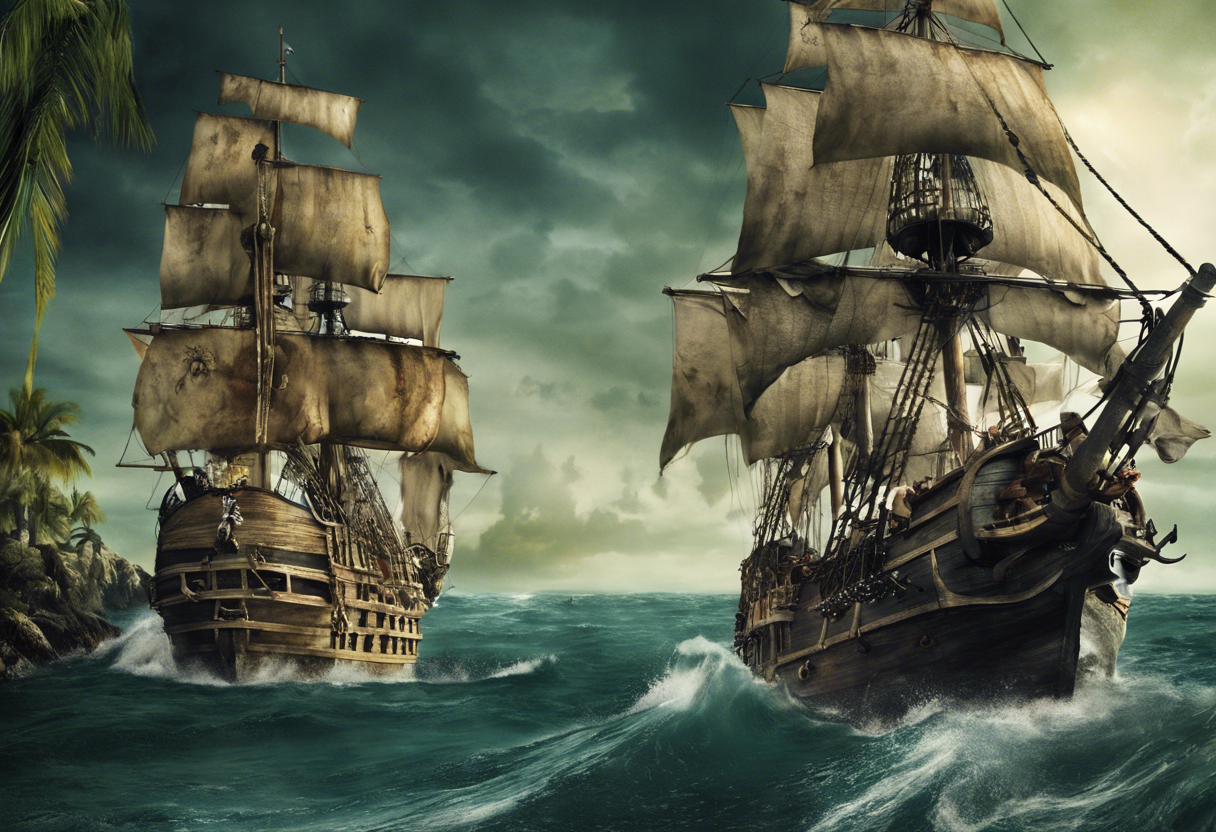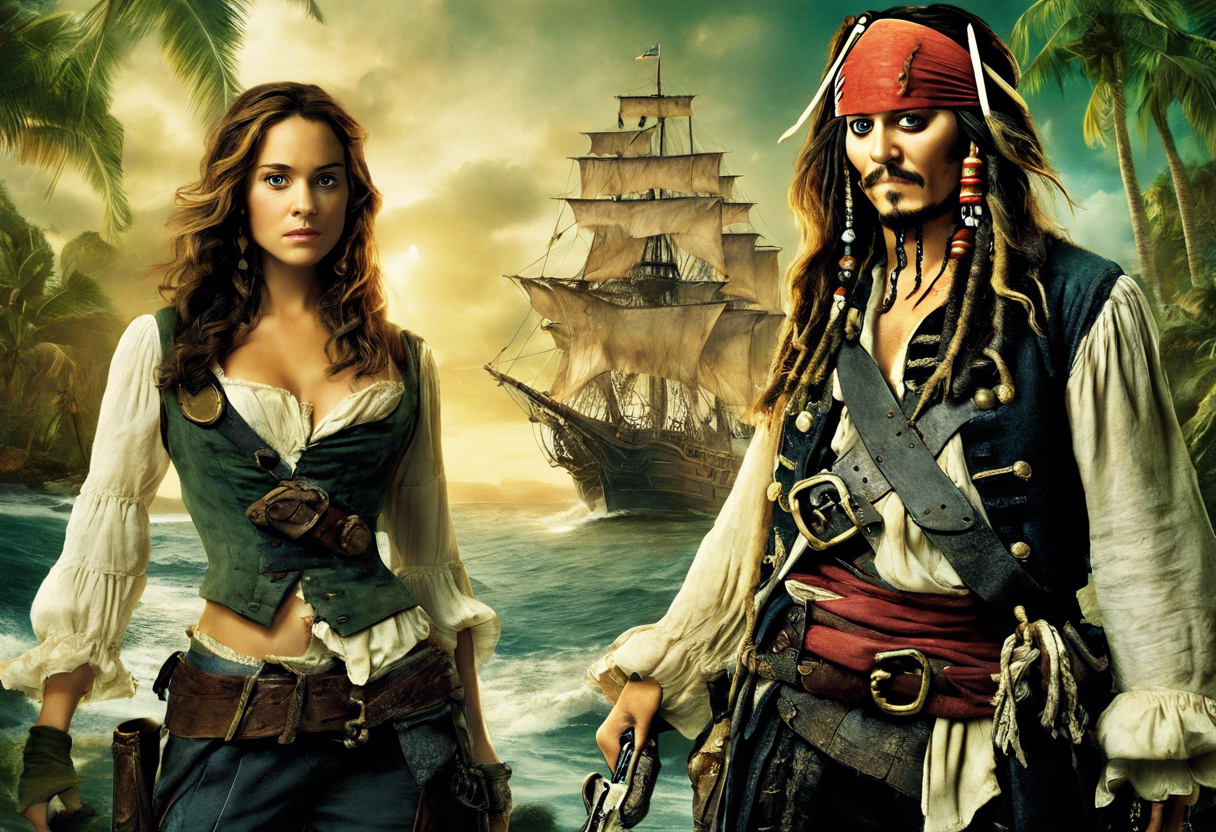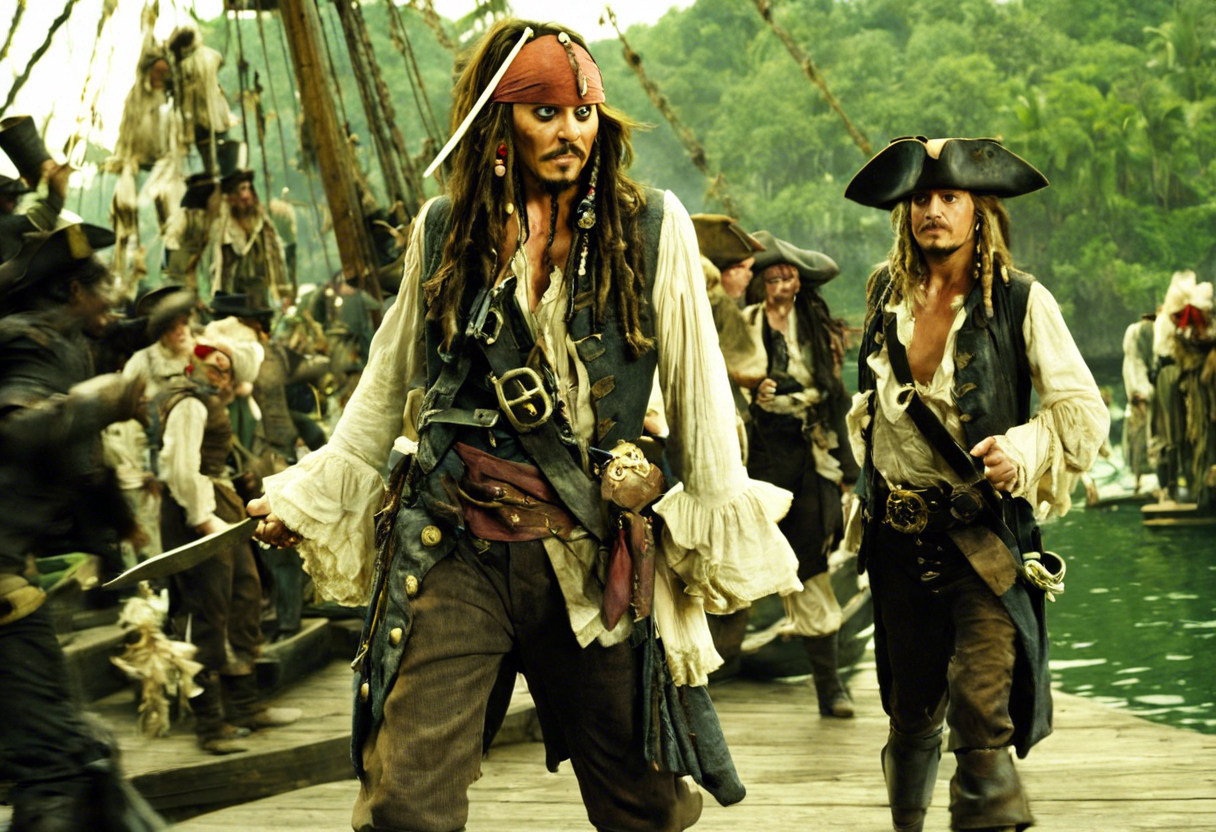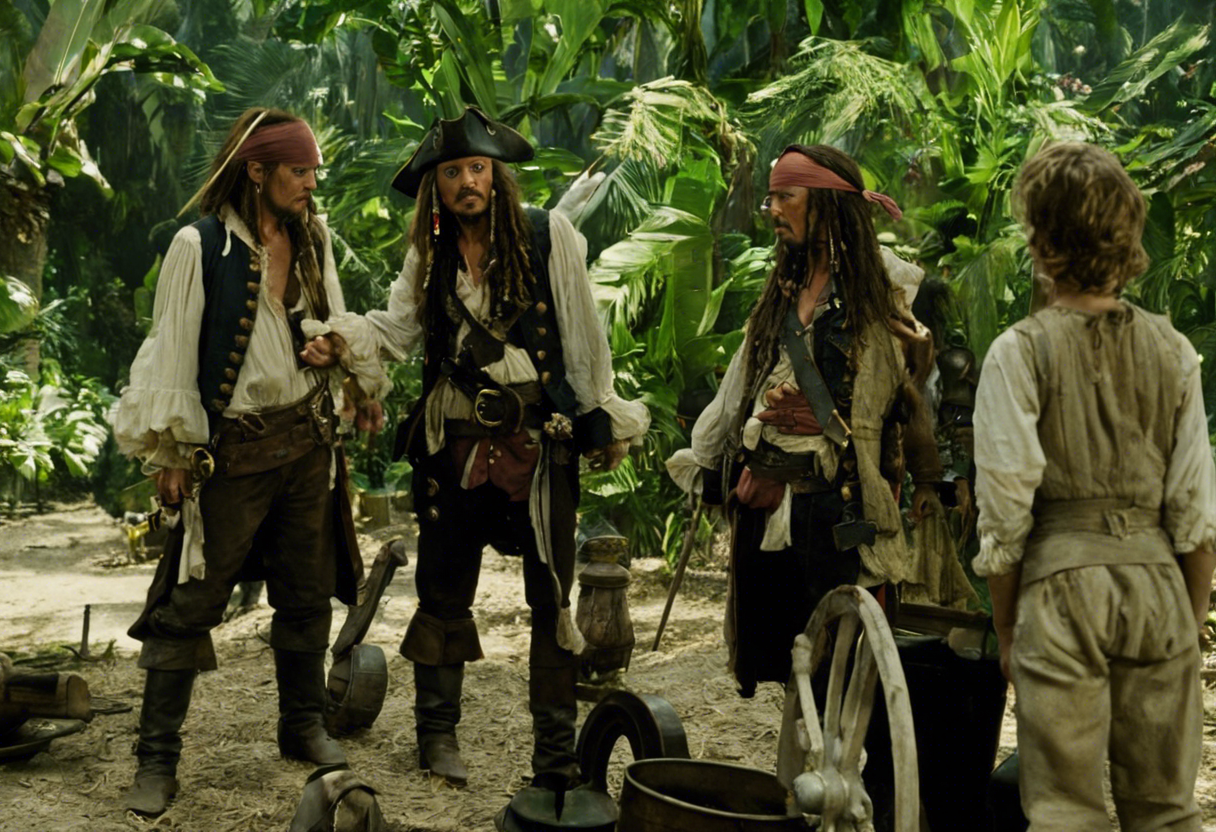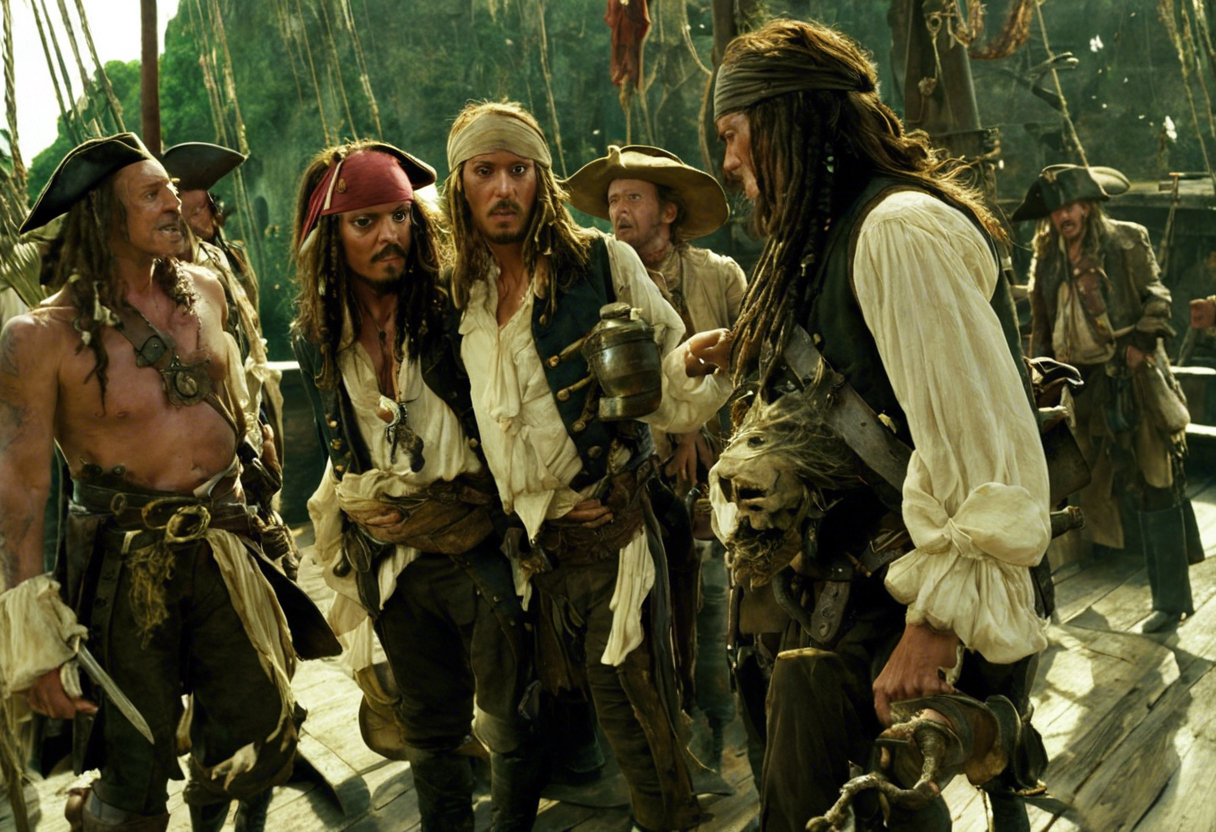Contents
Pirates of the Caribbean: Dead Man’s Chest
Introduction
"Pirates of the Caribbean: Dead Man’s Chest" is the second installment in the Pirates of the Caribbean film series, released in 2006. Directed by Gore Verbinski and written by Ted Elliott and Terry Rossio, the film is produced by Jerry Bruckheimer and distributed by Buena Vista Pictures Distribution. This sequel to "The Curse of the Black Pearl" (2003) continues the adventures of Captain Jack Sparrow, Will Turner, and Elizabeth Swann, set one year after the events of the first film.
The production of "Dead Man’s Chest" was a significant undertaking, with filming taking place from February to September 2005 in various locations including Palos Verdes, Saint Vincent and the Grenadines, Dominica, and The Bahamas, as well as on sets constructed at Walt Disney Studios. Notably, it was shot back-to-back with the third film in the series, "At World’s End" (2007)[5].
What sets "Dead Man’s Chest" apart is its ambitious scale, featuring larger and more impressive action sequences, a complex narrative, and the introduction of iconic characters like Davy Jones and the Kraken. The film’s blend of fantasy, adventure, and humor, coupled with its richly detailed world-building, has made it a standout in the swashbuckler genre.
Plot Summary
The plot of "Dead Man’s Chest" revolves around Captain Jack Sparrow’s (Johnny Depp) desperate attempt to avoid his fate. Jack owes a blood debt to Davy Jones (Bill Nighy), the captain of the Flying Dutchman, who has come to collect it. This debt threatens to condemn Jack’s soul to eternal servitude on the Dutchman unless he can find a way to escape.
Meanwhile, Will Turner (Orlando Bloom) and Elizabeth Swann (Keira Knightley) are arrested by Lord Cutler Beckett (Tom Hollander) for aiding Jack Sparrow. Beckett offers Elizabeth a deal: in exchange for her freedom, she must find Jack’s magic compass, which he believes will help him locate the Dead Man’s Chest. This chest contains Davy Jones’ still-beating heart, and whoever possesses it can control Jones and the Flying Dutchman.
Jack agrees to trade his compass to Will if Will can find the key to the Dead Man’s Chest. Will’s quest leads him aboard the Flying Dutchman, where he is reunited with his father, Bootstrap Bill (Stellan Skarsgård), who is cursed to serve on the ship. Will manages to escape with the key but is pursued by Jones and his crew.
The story unfolds with multiple parties converging on Isla Cruces, where the chest is buried. A three-way sword fight ensues between Jack, Will, and James Norrington (Jack Davenport), each with their own reasons for wanting the heart: Jack to negate his debt, Will to free his father, and Norrington to regain his status as a Navy officer. The chaos allows Norrington to secretly steal the heart and the Letters of Marque.
The film’s climax features an intense battle between the Black Pearl and the Kraken, a sea monster summoned by Davy Jones. Jack’s crew fights to survive, and in a dramatic turn, Elizabeth chains Jack to the mast to ensure the crew’s escape while she and the others flee. Jack eventually manages to wound the Kraken but is dragged underwater by the monster[1][5].
Themes and Symbolism
"Dead Man’s Chest" explores several central themes that enrich its narrative. One of the primary themes is the concept of debt and redemption. Jack’s debt to Davy Jones serves as a metaphor for the consequences of one’s actions and the quest for redemption. This theme is further complicated by Will’s desire to free his father from the Dutchman, highlighting the personal costs of such debts.
The film also delves into the theme of control and power, symbolized by the Dead Man’s Chest. The heart inside the chest represents the ultimate control over Davy Jones and, by extension, the seas. This symbol underscores the struggle for dominance and the moral implications of such power.
Additionally, the character of Tia Dalma (Naomie Harris) introduces elements of Afro-Caribbean mythology and the supernatural. However, her portrayal has been criticized for being a superficial representation of these cultures, serving more as a plot device than a deeply integrated character[3].
The Kraken, as a monstrous entity, symbolizes the uncontrollable forces of nature and the fears that lie beyond human understanding. Its attacks on the Black Pearl and its crew serve as a reminder of the dangers and uncertainties of the sea[4].
Cultural Impact
"Pirates of the Caribbean: Dead Man’s Chest" had a significant cultural impact upon its release. The film grossed over $1.066 billion at the box office, making it one of the highest-grossing films of 2006[5]. Its success can be attributed to its engaging storyline, memorable characters, and groundbreaking visual effects.
The film’s influence on popular culture is evident in its numerous references and parodies in other media. The character of Davy Jones and the Kraken have become cultural icons, symbolizing the darker aspects of piracy and the sea. The film’s music, composed by Hans Zimmer, also received widespread acclaim and has been featured in various forms of media.
However, the film’s portrayal of piracy and its historical context has been criticized for its romanticization and lack of accuracy. The series has been accused of perpetuating a European-American view of pirates that ignores the harsh realities of piracy and its impact on enslaved populations[3].
Critical Reception
"Pirates of the Caribbean: Dead Man’s Chest" received mixed reviews from critics but was generally well-received by audiences. Critics praised the film’s action sequences, visual effects, and the performances of the cast, particularly Johnny Depp’s portrayal of Jack Sparrow. However, some critics felt that the plot was overly complex and that the film relied too heavily on special effects[4].
The film holds a 54% approval rating on Rotten Tomatoes, with many critics noting that while it was entertaining, it lacked the coherence and charm of the first film. Despite this, the film’s commercial success and its impact on popular culture are undeniable.
Over the years, the film has developed a cult following, with many fans appreciating its ambitious storytelling and the expansion of the Pirates of the Caribbean universe.
Legacy
"Pirates of the Caribbean: Dead Man’s Chest" continues to be a significant film in the fantasy adventure genre. Its influence can be seen in subsequent films and TV shows that have adopted similar blends of action, humor, and fantasy elements.
The film’s use of advanced visual effects and its creation of iconic characters have set a benchmark for future films. The character of Davy Jones, in particular, has become a staple in modern pop culture, symbolizing the darker side of mythology and folklore.
The Pirates of the Caribbean series, of which "Dead Man’s Chest" is a crucial part, has inspired numerous adaptations, including video games, theme park attractions, and merchandise. The series has also spawned a dedicated fan base, with fans continuing to celebrate the characters and the world created by the films.
In conclusion, "Pirates of the Caribbean: Dead Man’s Chest" is a pivotal film in the Pirates of the Caribbean series, known for its epic scale, memorable characters, and rich thematic depth. Its impact on popular culture and its enduring legacy make it a significant contribution to cinematic history.
References
- https://www.imdb.com/title/tt0383574/plotsummary/
- https://www.youtube.com/watch?v=Wt6luHwso7E
- https://sites.duke.edu/blackatlantic/sample-page/contemporary-film-and-black-atlantic/history/disneyfied-histories-disneys-intentional-inaccuracy-historical-films-and-the-black-atlantic/pirates-of-the-caribbean-the-almost-slaveless-caribbean-race-and-the-black-atlantic/
- https://mixnmojo.com/features/reviews/Pirates-of-the-Caribbean-Pentalogy-Reviewed/2
- https://en.wikipedia.org/wiki/Pirates_of_the_Caribbean:_Dead_Man’s_Chest

